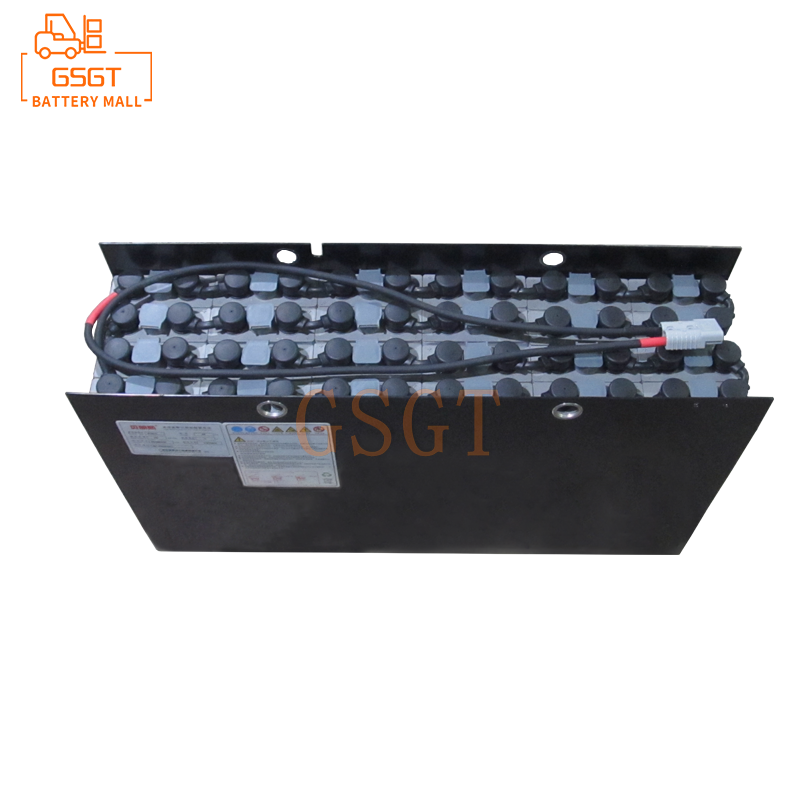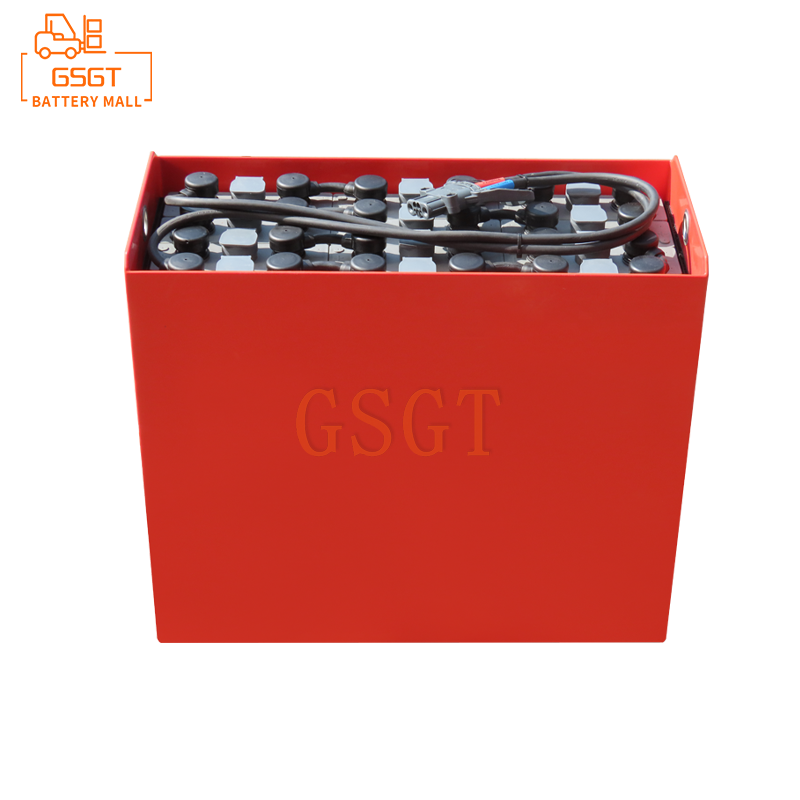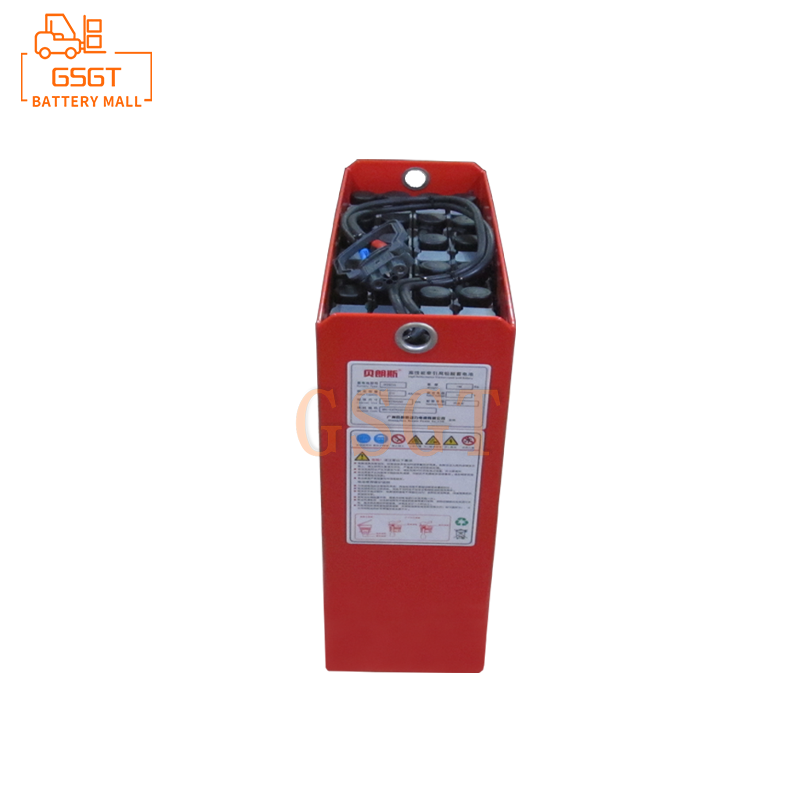Time:2025-04-12 09:53:20
Browse:532
In the field of modern logistics and industrial production, forklift is the key equipment for material handling, and its operation efficiency and energy consumption directly affect the operating cost and sustainable development ability of enterprises. With the increasing global attention to energy conservation and emission reduction, how to reduce the energy consumption of forklift trucks has become an important issue in the industry. In this context, with its own characteristics and technical development, the traction lead-acid battery provides an effective solution for the forklift to achieve low energy consumption operation.
Analysis of forklift energy consumption
Forklift is widely used in warehouses, ports, factories and other places, its operating environment is complex, diverse working conditions. Traditional internal combustion forklift trucks mostly use diesel and gasoline as power sources, and the engine continues to burn fuel during operation, which not only produces a large amount of greenhouse gas emissions, but also a large fuel consumption. According to relevant statistics, the annual fuel consumption cost of a medium-power internal combustion forklift can reach tens of thousands of yuan, which is a heavy cost burden for enterprises using forklifts on a large scale.
Although electric forklifts have significant advantages in environmental protection, some electric forklifts have higher energy consumption in the early days due to battery technology limitations. For example, some electric forklifts using backward lead-acid battery technology have short driving range, frequent charging not only affects work efficiency, but also the energy loss during charging can not be ignored. At the same time, the power demand of forklift fluctuates greatly under different working conditions such as starting, accelerating and braking, and the unreasonable energy management system further aggravates the energy consumption problem.
The working principle and characteristics of the lead acid battery
A traction lead-acid battery is a chemical power supply based on the electrochemical reaction between lead and its oxides and a sulfuric acid solution. In the discharge process, the positive lead dioxide and the negative lead are converted into lead sulfate under the action of sulfuric acid, and the electric energy is released to supply power to the forklift truck. When charging, the process is reversed, and the electricity causes the lead sulfate to decompose and reduce to lead and lead dioxide, achieving energy storage of the battery.
This type of battery has a number of features that facilitate low-energy operation of forklifts. First, the cost is relatively low, compared with the emerging lithium batteries, lead-acid batteries mature production process and rich raw material supply, so that the price is close to the people, which for forklift use enterprises, reduce the initial equipment acquisition cost. Second, the high current discharge performance is good, the forklift needs a strong current output to provide enough torque at the start of the moment and when carrying heavy objects, and the traction lead-acid battery can meet this demand to ensure the efficient operation of the forklift. Third, high safety, lead-acid battery technology after a hundred years of development, its structure and chemical properties are stable, under normal use and maintenance conditions, it is not easy to fire, explosion and other safety accidents, providing a reliable guarantee for the daily operation of forklifts.
Technical advantages to help low-energy operation
Energy conversion efficiency optimization
With the progress of material science and manufacturing technology, the energy conversion efficiency of modern traction lead-acid batteries has been greatly improved. The new plate material and electrolyte formula can effectively reduce the internal resistance of the battery and reduce the energy and heat loss during the charge and discharge process. Research shows that some advanced traction lead-acid batteries can reach more than 80% energy conversion efficiency, which means that forklifts can convert more of the electrical energy stored in the battery into actual mechanical energy for handling operations, thereby reducing the energy consumption per unit of work.
Deep discharge and long life design
Forklift operation has intermittent characteristics, and the battery is often in a partial discharge state. The traction lead-acid battery has good deep discharge performance and can maintain stable output voltage and capacity under large discharge depth. At the same time, the cycle life of the battery is extended by improving the grid structure and adopting special additives. The long-life design reduces the frequency of battery replacement during the entire life cycle of the forklift, which not only reduces maintenance costs, but also indirectly reduces the energy consumed by the production of new batteries in the long run, in line with the development concept of low energy consumption.
Synergies with forklift energy recovery system
During the operation of forklift, a lot of kinetic energy will be generated during braking. Today, more and more forklifts are equipped with energy recovery systems, and traction lead-acid batteries can work well with them. When the forklift is braking, the motor switches to generator mode, converting the kinetic energy generated by the braking into electricity and charging it back to the battery. With its wide charge and discharge acceptance capacity, the traction lead-acid battery can efficiently absorb this part of the feedback electric energy, achieve energy recycling, and further reduce the overall energy consumption of forklift operation. For example, in some logistics warehouse operation scenarios with frequent starts and stops, the energy recovery system combined with the traction of lead-acid batteries can reduce the energy consumption of forklifts by 10%-20%.
Future development trends and challenges
With the continuous progress of science and technology, the traction lead-acid battery will usher in new development opportunities in helping the low-energy operation of forklift trucks. On the one hand, researchers will continue to explore new materials to further improve the energy density of the battery, extend the range of the forklift, reduce the charging frequency, and thus reduce the energy loss during the charging process. For example, the use of new lead alloy materials to manufacture plates is expected to improve battery performance while reducing costs. On the other hand, the intelligent battery management system will be more popular, through real-time monitoring of battery voltage, current, temperature and other parameters, accurate control of the charge and discharge process, optimize the efficiency of the battery, and further tap the energy saving potential.
However, towing lead-acid batteries also faces many challenges. The rapid development of lithium battery technology, with its advantages of high energy density and long cycle life, has formed a certain impact on the lead-acid battery market. In addition, lead acid batteries in the production and recycling process, if not properly handled, may cause pollution to the environment. Therefore, the industry needs to strengthen technological innovation, enhance the competitiveness of lead-acid batteries, and improve the recycling system of lead-acid batteries to ensure green environmental protection throughout their life cycle.
With its unique technical advantages, the traction lead-acid battery plays an important role in helping the forklift to achieve low-energy operation. Through continuous technological innovation and practical application optimization, its energy saving potential in the field of forklift trucks will be further released. Despite the competition and environmental pressure, as long as all parties in the industry work together to continue to promote technological progress and industrial upgrading, lead-acid batteries will occupy an important position in the future forklift power system and contribute to the global energy conservation and emission reduction cause.

$1345

$1105

$1105

$1105

MESSAGE
Professional And Efficient
Security
Affordable Price
Professional Services